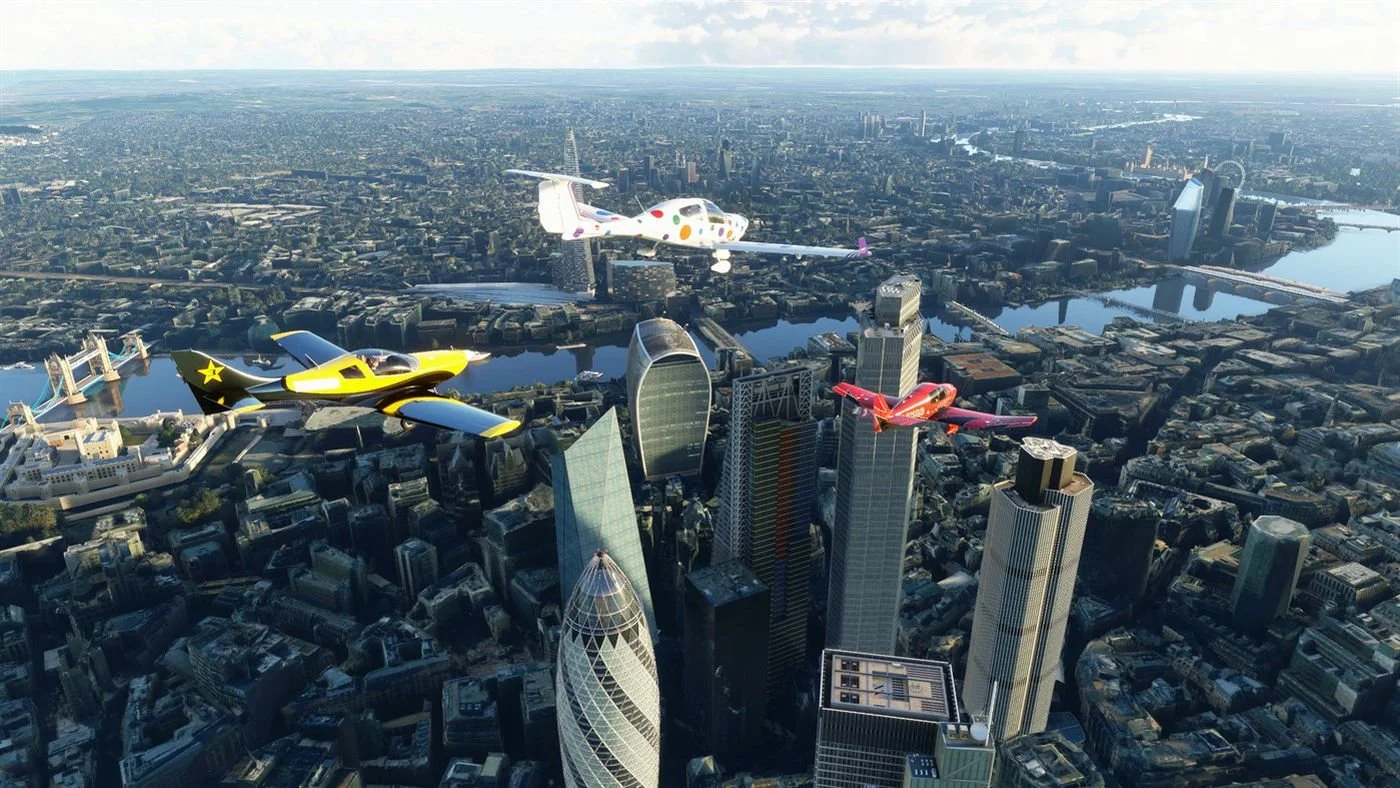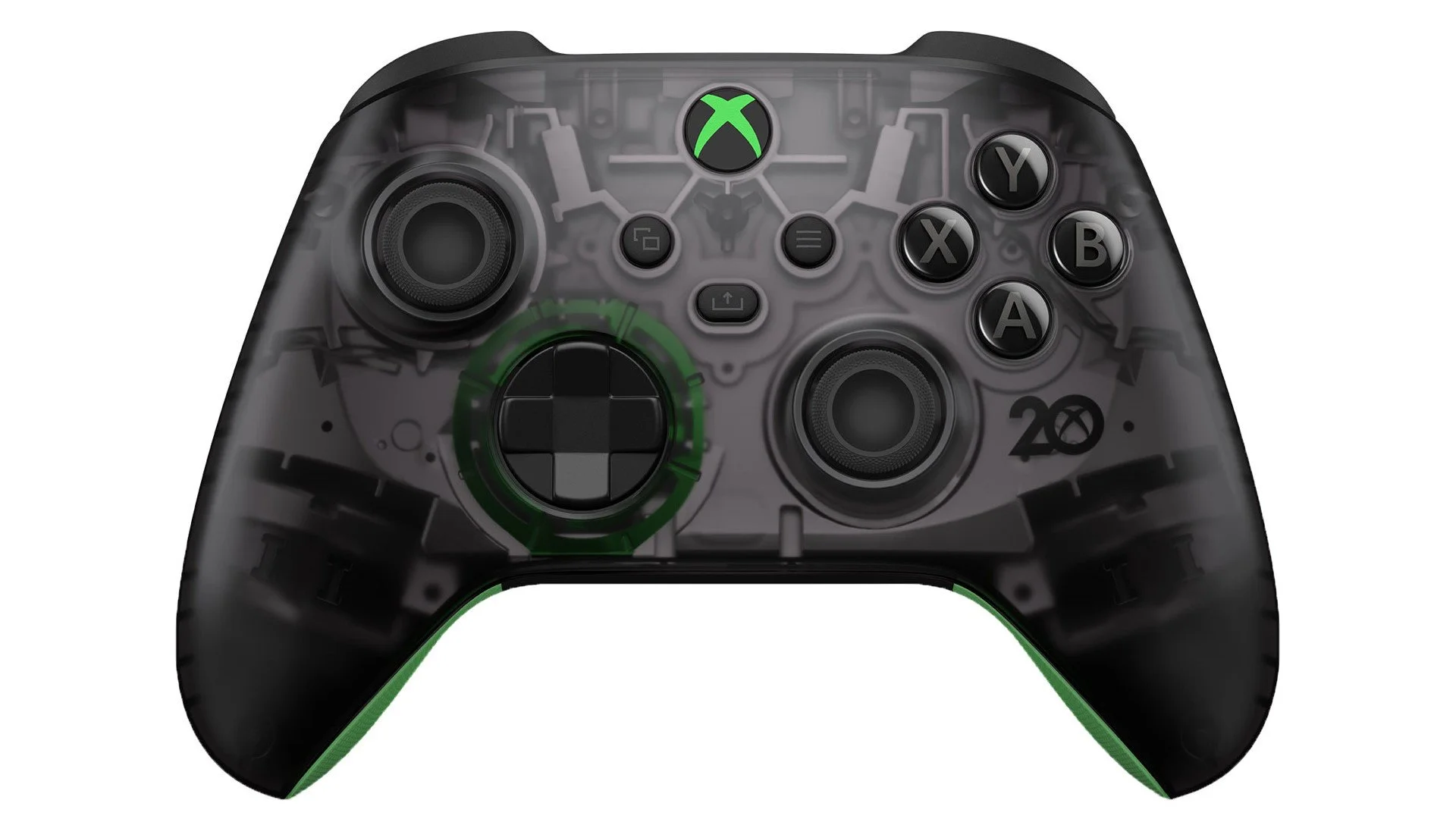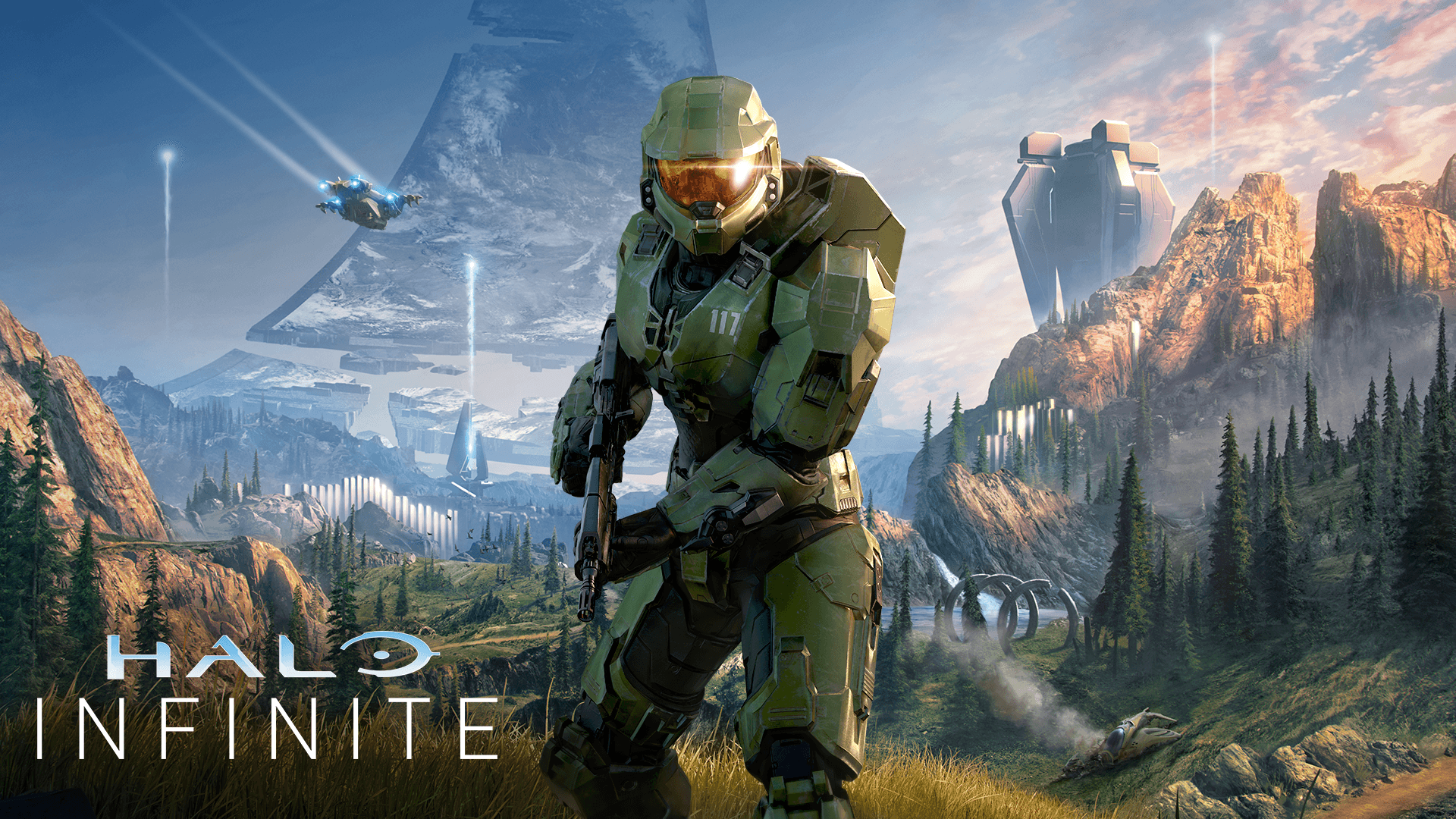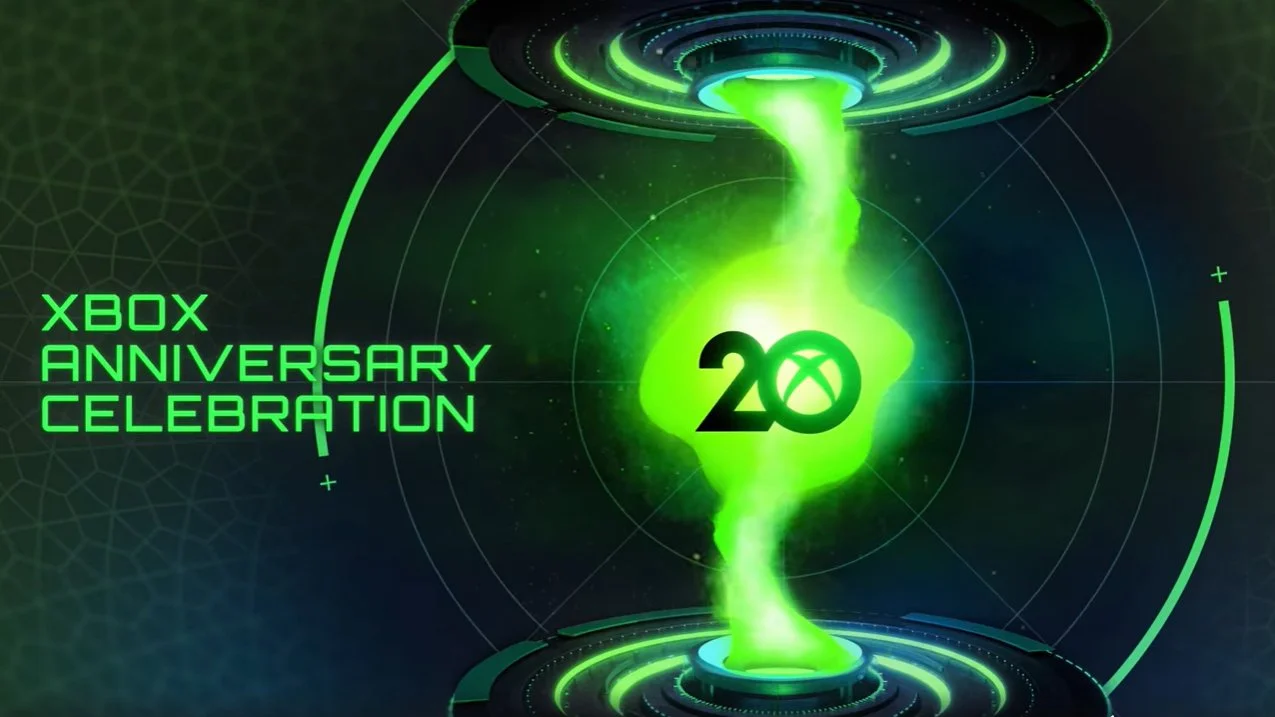Alex Green Looks Back at Xbox's Eventful Year | Winter Spectacular 2021
As an Xbox owner for the last decade, I've learned to embrace patience as a truly important virtue. Watching Microsoft take themselves from the heights of the gaming zeitgeist with the Xbox 360’s ubiquity, its raft of franchises and bold IP & the distant but not forgotten Xbox Live Arcade, only to squander all goodwill with the Xbox One launch was truly perplexing. Looking back, it's hard not to be somewhat incredulous by just how wilfully out-of-step the company became with what the public wanted from a console.
LET’S GO ON AN ADVENTURE!
Whilst Sony embarked on one of the greatest exclusive collections of games for any console, Microsoft struggled to even get the ship out of the harbour -or should I say, the company struggled to ship Recore out the door. Outliers like the excellent Ori and the Blind Forest, Sunset Overdrive and the Forza Horizon series couldn’t save a generation for Xbox that heavily relied on the efforts of third-party developers.
There are no two ways about it, last generation was bad for Xbox when it came to exclusives and sales. Outclassed by Sony, it's well-documented that Microsoft and Phil Spencer began a long period of catch up. However, backwards compatibility, Game Pass and the One X always just felt like too little too late. What most of us didn’t realise at the time was how important those steps would be in order for Xbox to rebuild for its future endeavours. Now, in 2021, it feels like all of the company’s steps of atonement have begun to pay off in tangible creative excellence, consumer-friendly moves (for the most part) and a platform that makes reasonable and exciting moves.
To start with, that creative excellence. Whilst not all of the company’s efforts truly excelled critically - no one bats a thousand - for long-time Xbox players, this year felt like a true return to form for the company. Much has been made of Microsoft’s spending spree of acquisitions and exclusive deals, for what it's worth, I think it’s best for the competitive health of the industry that the multi-billion dollar conglomerate stops at this point having accumulated so much. Nevertheless, no matter how you feel about it, these acquisitions have started to pay off.
Planes go brrrrrrrr.
Double Fine’s Psychonauts 2 launched successfully and to critical acclaim during the Summer, and is still keen in the minds of those discussing Game of the Year and a reminder of the potential creativity bursting from one of the most historically inventive development studios. Playground Games have produced one of gaming’s quintessential racing classics in Forza Horizon 5, a culmination of years of refinement to produce one of the smoothest racers ever, coupled with plenty of gameplay and stunning visual and auditory settings. Horizon 5 was such a standout in terms of quality that it is fair to say the upcoming Fable is in some very good hands before we have seen any gameplay. World’s Edge continued its impressive run through its revival of the Age of Empires series with the long-awaited fourth entry. Microsoft Flight Simulator received an excellent console version, which is still a technical marvel one year on.
Just dudes being bros.
Then there is Halo. Whilst the campaign is yet to be judged by the masses at the time of writing, Halo: Infinite’s multiplayer has been certainly excelling on the gameplay front and its shadow drop during Xbox’s 20th Anniversary Celebration Stream felt like the sort of mic drop moment the industry hasn’t had in quite some time. Of course, these just refer to the output from Xbox Game Studios. However, looking at Xbox Game Pass, the other major highlight of Microsoft’s gaming year, plenty of wonderful indies have made their homes in the ecosystem. Whether it be the glorious kaleidoscope that is The Artful Escape, the delightfully mellow Omno, the criminally underlooked Cyber Shadow, and so many more, this felt like a year where the company showed the value of Xbox Game Pass, not just to provide access to a handful of 1st party titles on the cheap, but to promote great alternative games to people who may not usually try them. Add to that some 3rd-party AAA titles like Outriders launching day one on the service, and its value became unmatched. Even I found myself struggling to keep pace with the beautifully unique indies gracing the service, with titles like Echo Generation, Genesis Noir & Last Stop adding to my innumerable backlog.
MORE CLEAR PLASTIC TECHNOLOGY!
Beyond software, Microsoft was also able to produce some excellent hardware, even if the current chip shortages have limited sales of consoles. Whether it be the beautiful special edition Halo: Infinite Series X, or the expansions of the fan-favourite Design Lab controllers made in the summer or the new Xbox Wireless Headset, they’ve produced some wonderful artistic variations that make the next-gen hardware as stylish as it is powerful, oftentimes really making its hardware feel premium.
Long gone are the days of Mr. X-Men-Ice-man-guy.
For me though, the other big win that cannot be glossed over was the company’s efforts to increase accessibility options and its expansion to services that are hard not to view as a net positive for the industry. For one, Xbox made some necessary and important steps to further improve the accessibility of games on the system. An updated store now provides more tags providing features for games to help players make more informed purchasing choices, adding a global colour filter setting to apply to everything on any Xbox device and continued updates to the brilliant Xbox Adaptive Controller. Additionally, the company started a free course for developers to cover the fundamentals of making games more accessible on top of the company’s Xbox Accessibility Guidelines for studios. Hopefully, these moves set a larger industry-standard that accessibility should be at the core of development and that any studio should support that and also be supported to include detailed accessibility options.
This isn’t to say Xbox’s 2021 was all sunshine and roses. After all, it certainly had its controversial moments. The first month of the year brought a major misstep when the company tried to hike the price of Xbox Live Gold, the subscription service which allows players to play online. Backlash was swift and very loud, resulting in Microsoft backtracking very quickly and in the process was even overturned its long-running controversial policy of requiring XBL Gold for free-to-play games (something Sony and Nintendo did not). This felt like a reminder that at its core, the company is just like any other money-making business, prone to making moves designed to extract more funds from players.
It is pretty easy to forget some of Xbox’s misstep when it ended the year like this.
Additionally, Xbox has begun stepping up its implementation of cloud gaming and integrating it into Windows 11, a move that sees the company moving further and further from the permanence of physical media. Whilst the cloud gaming infrastructure is certainly impressive, the embrace of the innovative does raise a question as to how much Microsoft cares about preserving physical media. It is worth noting that this would all appear to clash with the company’s massively popular backwards compatibility program (which sadly is now finished) and support for preservation. Hopefully, Spencer and Microsoft do more to promote the value of physical media in the future.
Besides these corporate issues though, as well as a couple of creative misfires with the likes of The Medium and 12 Minutes, Xbox certainly had a 2021 to remember. However, 2022 could be even better for the company with the built-in player base of Game Pass and hopefully with console shortages easing (although probably not anytime soon according to Phil Spencer). 2022 currently looks to be an enticing year for Xbox, with S.T.A.L.K.E.R. 2: Heart of Chernobyl, A Plague Tale: Requiem and Arkane's intriguing Redfall and of course the massively anticipated Starfield all slated to debut on Game Pass next year, and who knows what other tricks Spencer and the team might have. All I can say is that for the first time in a long time, Xbox owners don’t need to exercise the virtue of patience anymore.
*extremely Usher voice*: Happy Birthday Xbox!













